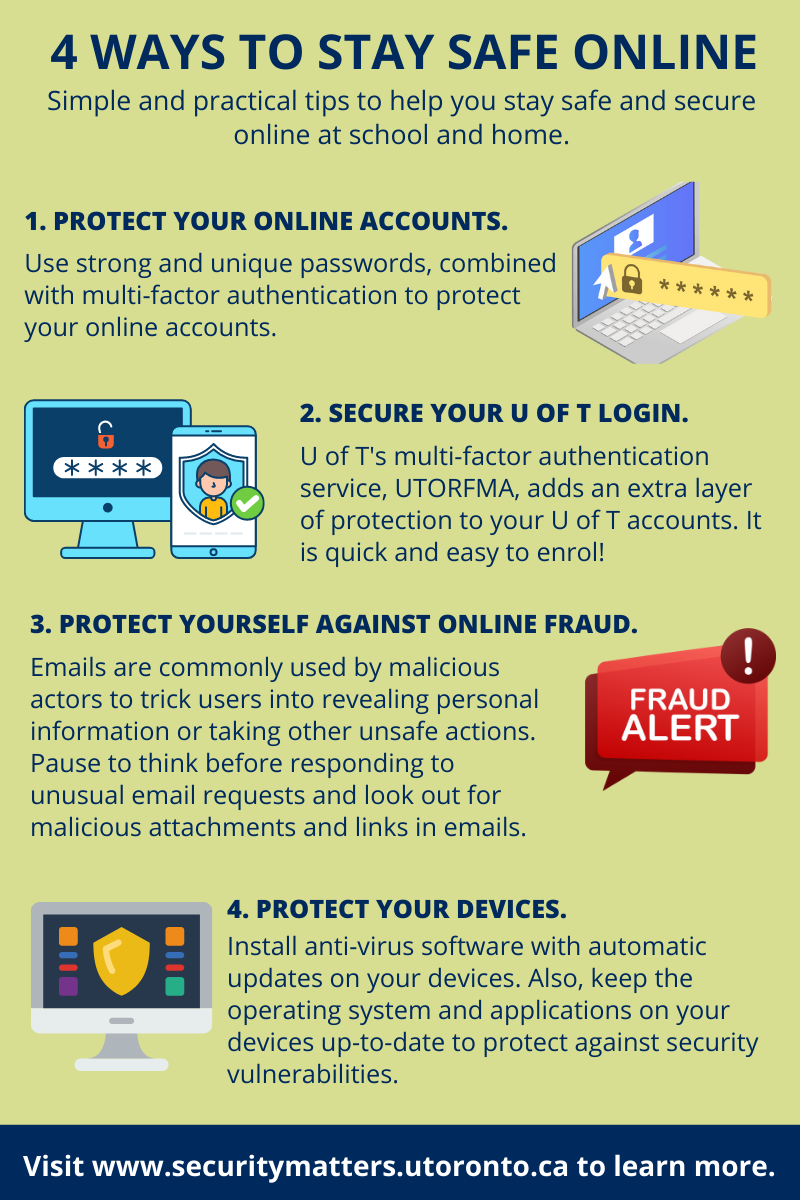The holiday season is a lucrative time for online retailers and a vulnerable time for online shoppers. As many people take advantage of holiday deals and shop online, hackers take advantage of this time of the year to steal sensitive and confidential information.
With the increased number of phishing attacks in recent weeks, it’s important to stay aware and practice good cyber security during the holiday season. Here are five simple steps to protect your information and shop online safely:
Look out for suspicious emails
With the high volume of holiday messages, newsletters, sales and other emails landing in your inbox, ensure that you only open emails from known and trusted senders. Don’t click on unknown links, download attachments or reply to unsolicited emails from unfamiliar senders.
Secure your login
If an online retailer requires that you create an account for purchases, create a strong password and use multi-factor authentication (MFA) when possible. Ensure that your password is unique from other passwords. The more unique passwords you have, the more difficult it will be for your accounts to be hacked. MFA will enhance security on your online accounts by enabling stronger authentication tools like a one-time code sent to your phone.
Think before you click
Be wary of clicking links from unfamiliar websites, particularly the ones that give away discounts that seem too good to be true. If you receive an enticing offer through email or text, do not engage. Visit the company’s official website or app to verify the legitimacy of the offer. Beware of smishing (SMS phishing) messages offering deals and discounts, even from brands you think you’re subscribed to as they could be fraudulent. If you receive an SMS from an unknown phone number, do not engage.
Don’t save your payment information online
When making an online purchase, pay attention to the information being requested to complete your purchase. Remember that you only need to fill out required fields while checking out. Online retailers are one of the biggest targets for hackers, and saving your credit card details on a retailer’s website could compromise your information in the event of a data breach.
Monitor your online activity
Check your online accounts and banking statements regularly for any suspicious activity. You can also set up alerts for your debit or credit cards to monitor suspicious activity.
Check out more tips you can follow to shop online securely this holiday season.
For more information on cyber security, please visit https://securitymatters.utoronto.ca/.
Safe shopping!

